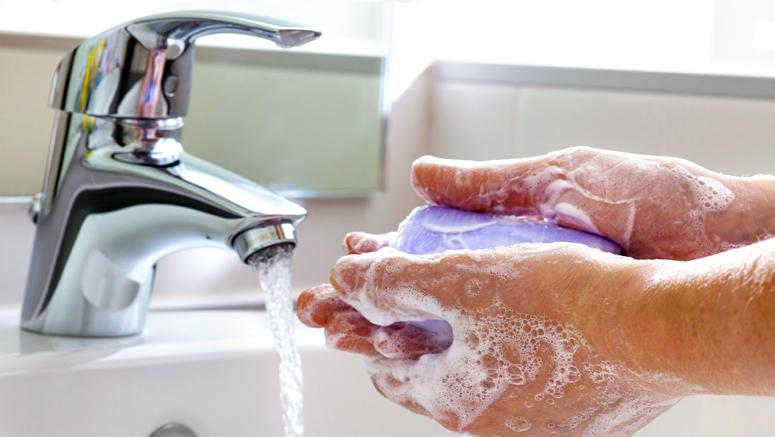Antibacterial Soap Will Disappear From Shelves Within A Year
Antibacterial soaps will be removed from store shelves because they offer no benefits over regular soap.
The United States Food and Drug Administration (FDA) announced on Sept. 2nd that within a year, antibacterial soaps will be removed from store shelves because they offer no benefits over regular soap.
According to the FDA, washing your hands with regular soap and water is your safest bet. The advantages of using antibacterial soap have never been proven—there is no evidence to show that they are better at preventing illnesses and eliminating bacteria. There’s also a possibility that using antibacterial soap puts you at a disadvantage.
In a statement, the FDA said, “Companies will no longer be able to market antibacterial washes with these ingredients because manufacturers did not demonstrate that the ingredients are both safe for long-term daily use and more effective than plain soap and water in preventing illness and the spread of certain infections.”
The FDA listed 19 ingredients they are banning, and they want companies with products that include those banned ingredients to either change their formula or remove their products from stores within a year. The two most popular antibacterial ingredients, amongst products sold in brands like Dial, Lever, and Softsoap, that have long been studied for having long-term negative effects are triclosan and triclocarban. Triclosan is found in liquid soaps while triclocarban is found in bar soaps.
The FDA says these ingredients could create bacterial resistance and also affect hormonal levels. However, they are unsure how triclosan and triclocarban affect humans because they have only done studies on animals. Well-known manufacturers, Johnson & Johnson and Proctor & Gamble, are planning on removing triclosan from their products.
The FDA has gotten support from the Environmental Protection Agency (EPA) and the Center for Disease Control and Prevention (CDC) but the American Cleaning Institute (ACI) issued a statement refuting the FDA’s claims.
“Antibacterial soaps are critical to public health because of the importance hand hygiene plays in the prevention of infection,” the ACI said in their statement. “Washing the hands with an antiseptic soap can help reduce the risk of infection beyond that provided by washing with non-antibacterial soap and water.”
The FDA’s new ban doesn’t apply to three ingredients that are found in antibacterial products—benzalkonium chloride, benzethonium chloride, and chloroxylenol. The FDA has decided to delay their decision on those three ingredients for one year, so manufacturers can submit information on the safety and effectiveness of products containing these ingredients.
The FDA’s ban does not include hand sanitizers and hand wipes, which they have proven are effective. It only applies to consumer antibacterial soaps that are used with water. It also doesn’t include antibacterial soaps that are used in hospitals, nursing homes, and other healthcare settings. The FDA advises to simply scrub with regular soap and water.
Your donation supports independent, student-run journalism at Pace University. Support the Pace Chronicle to help cover publishing costs.

